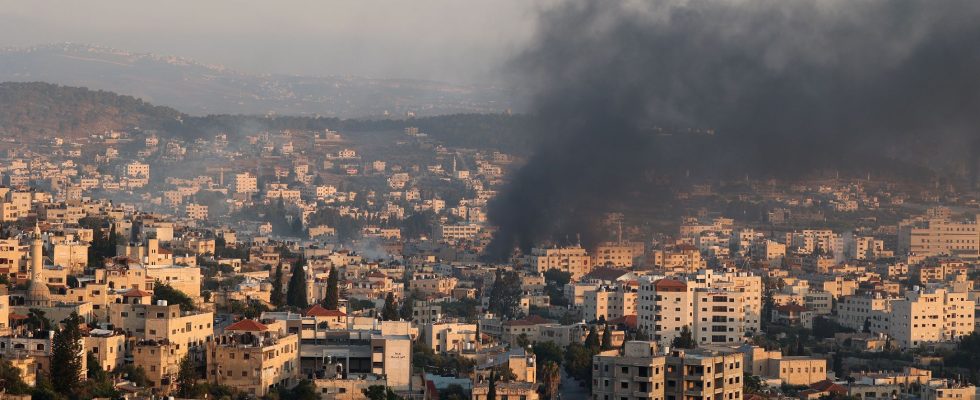“We are hitting this hub of terrorism with force,” assumed the Israeli government. Foreign Minister Eli Cohen has confirmed that he is carrying out an “anti-terrorist operation” in Jenin, a city located in the northern West Bank and theoretically under Palestinian control. This is the largest Israeli incursion into the West Bank for several years. Eight Palestinians were killed in battle with the Israeli army, the Palestinian health ministry said. Fifty others were injured, and ten of them are in critical condition.
The raid was launched overnight from Sunday to Monday against a Palestinian refugee camp. Eli Cohen accuses the refugees of having fomented “terrorist attacks against Israeli civilians”. Defense Minister Yoav Gallant also defended a “proactive approach” to terrorism. A “terrorist infrastructure” and an “operations center” serving as the command of the Jenin Brigade, a local militant group, are targeted, the Israeli army said. This uses bulldozers, armored vehicles and drones. “The city of Jenin and the Jenin camp are currently a combat zone,” she acknowledged.
Army spokesman Lt. Col. Richard Hecht said his troops were doing their best to spare the civilian population. “We are acting against specific suspects,” he told reporters. “The airstrike method, our target being right in the heart of the camp, took them by surprise.”
A “brutal” incursion
The Palestinian response was immediate. “All options are on the table to strike the enemy in response to its aggression in Jenin,” the armed group Islamic Jihad warned in a statement. The leader of the Islamist movement Hamas, Ishmael Haniyeh, described the Israeli incursion as “brutal”. For its part, Jordan denounced “the recent aggression targeting the city of Jenin” and launched an “urgent appeal to the international community to (…) put an end to the Israeli attacks in the occupied Palestinian territories”, according to its diplomacy.
This is not the first time that Israel has launched raids on Jenin. This city, a stronghold of Palestinian armed groups, is regularly the scene of clashes between Israeli and Palestinian forces. Yet it is officially under the control of the Palestinian Authority chaired by Mahmoud Abbas, like about 40% of the West Bank. But Israel has been planting settlements in this region since its lightning victory in 1967, during the Six Day War.
Increased violence in recent months
Tensions with the Palestinians have redoubled in intensity since Prime Minister Benjamin Netanyahu returned to power in December 2022. He has surrounded himself with a right-wing and far-right coalition, including several supporters of the annexation of the West Bank, like Bezalel Smotrich. This leader of the religious Zionist Party was put in charge of the administration of settlements in the occupied West Bank. At the same time, Israeli settlements have continued to grow.
The violence has therefore increased, with the death in June of seven people, including two 15-year-olds during an Israeli army raid on a refugee camp in Jenin. During this raid, the army also fired missiles from a helicopter, unprecedented in the West Bank since 2002, during the second Palestinian intifada. At the end of June, the UN Security Council called for de-escalation. The UN envoy for the Middle East, Tor Wennesland, said he was “very worried about the spiral of violence” in the West Bank. But the Israeli and Palestinian forces do not seem ready to raise their arms. Since the beginning of the year, at least 185 Palestinians, 25 Israelis, a Ukrainian and an Italian have been killed, according to an AFP count compiled from several official sources.
